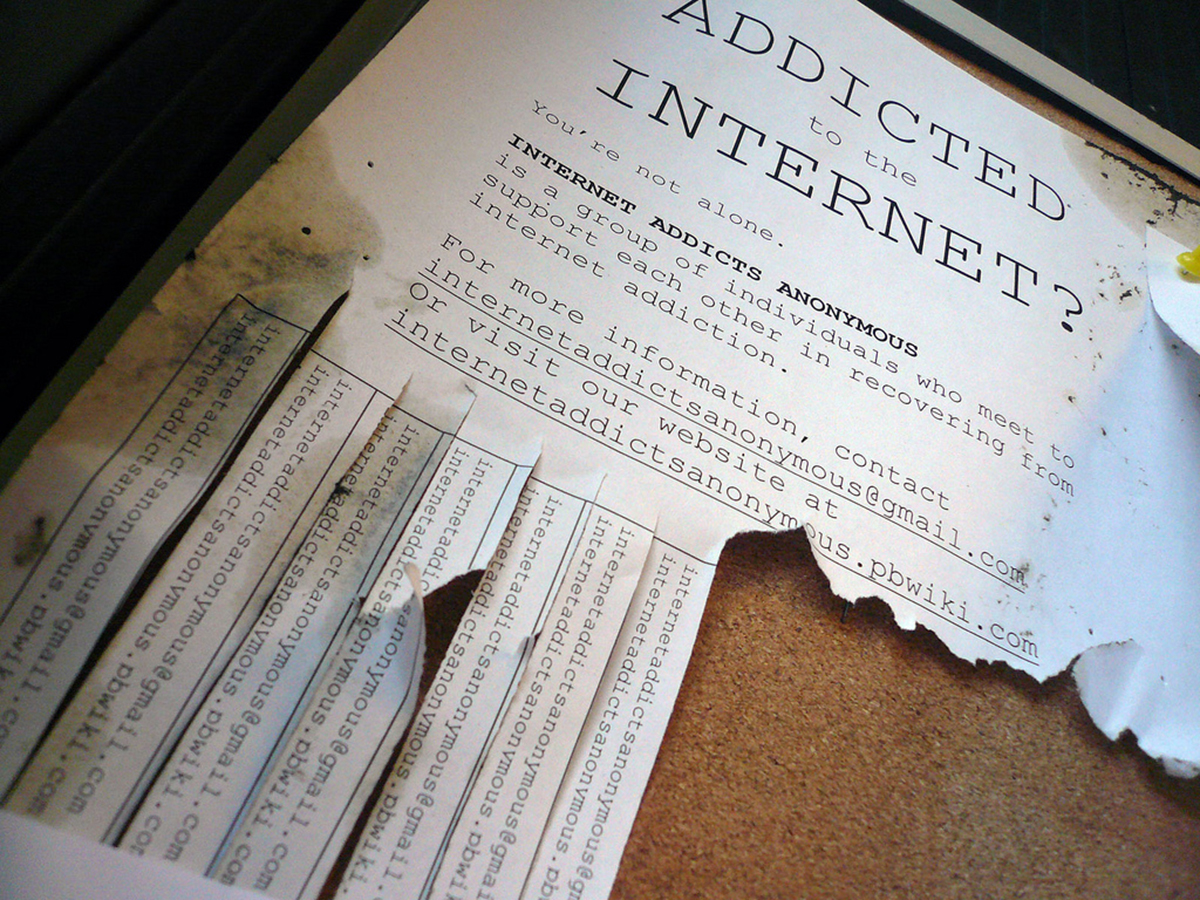General overview
Internet gaming disorder is defined as a compulsive or excessive preoccupation with internet or home based gaming and activities which leads to the interference of normal daily life. It is an "unofficial" diagnosis in the Diagnostic and Statistic Manual of Mental Disorders (DSM-5), but since there is evidence of psychological and physical effects due to prolonged and excessive gaming, then further research into this condition needs to be done. Addiction to video games has been included as part of internet gaming disorder.

Criteria for the diagnosis of the disorder
Of the following criteria, at least 5 need to be present in an individual within a 1 year period. These criteria were set-up by the DSM-5 as a way to try and collect data in order to determine whether Internet Gaming Disorder should be a stand-alone diagnosis or not.
- Pre-occupation - the patient spends lots of time thinking about video/internet games and even when they are not playing.
- Tolerance - the patient gets used to playing games so they then start to increase their playing time, they also want to play more graphic games or need to start using more powerful items to achieve the same level of excitement.
- Withdrawal - the patient can get irritable, angry, restless, moody, sad or anxious when they try to reduce their gaming, attempt to stop playing or when they are in a situation where they are unable to play.
- The need to reduce or stop - there is a feeling that the patient should reduce the time spent playing games but fin it difficult to do so.
- Giving up extra-mural activities - patients become disinterested in other activities such as socializing with friends and family because of gaming.
- Continuing despite problems - patients will continue playing games despite being aware of the possible consequences, such as being late for work or school, reduced sleep, spending a lot money, neglecting responsibilities or arguing with others.
- To escape adverse emotions - they game to try and escape their everyday problems and to try and reduce emotions such as guilt, anxiety, helplessness or depression.
- Deceive or cover up gaming- the patient will lie to friends or family about how much time is spent playing or they try to keep friends or family from discovering the amount of time that is spent on gaming.
- They run the risk of losing relationships or possible career prospects due to excessive gaming.
Adverse effects of the disorder
This condition can lead to physical adverse effects on the patient and they include the following:
- Headaches.
- Neck and back pain.
- Palpitations.
- Fatigue.
- Poor physical hygiene.
- Gastro-intestinal and digestive disturbances.
- Abnormal or disturbed sleeping patterns.
- Weight loss or gain.
READ Internet And Your Brain: Psychological Effects Of Online World
A more pressing issue is the psychological effects of this disorder and they include the following issues.
- Anxiety.
- Depression.
- Anger management issues.
- Social isolation and withdrawal.
Research Conducted On Internet Gaming Disorder (IGD)
Ko. C-H found, on meta-analysis, that the previous studies that were done on IGD support the existence of the disorder. Questionnaires that were filled in by patients and functional MRI scans pointed towards the possibility of IGD having strong addictive properties similar to those seen in patients with other intoxicant and non-intoxitant addictions. However, further studies need to be done in order to gather more data on patients using the criteria set-up in the DSM-5.
In Young, K.S. it was found that , by using pathological gamblers as a model, pathological internet use seemed to be an impulse-control disorder without an intoxicant being involved. It was also found that in those described as addicted towards to the internet, there were functional and behavioural differences between this group and those who were not classified as addicted to the internet. Further studies into the behavioural properties of internet addiction were proposed here.

King, D.L. discussed IGD as having unique and distinct cognitive factors which apply to the disorder alone and therefore differentiates it from other mental health conditions. These include core beliefs about the player and perceptions of the nature of online and video gaming rewards, identities and activities. It is mentioned, though, that further studies need to be done on the general population and on clinical samples.
Management of this disorder
Different countries have set-up programmes and treatment protocols unique to their affected populations groups, and have therefore opened treatment centres that focus on this specific issue. Although further research does need to be done to better understand the causes and progression of this disorder, there have been successes regarding management of the problem.
The countries which have set up rehabilitation centres specifically for this disorder include the United States of America, China, the Netherlands, Canada and Australia. There have been reported cases of deaths due to this disorder and the affected individuals were from China, South Korea, Vietnam, USA, Brazil and the Philippines.
READ Do YOU Display Any Internet Addiction Warning Signs?
Conclusion
Internet Gaming Disorder is a mental health condition which shows strong evidence of being an impulse-control condition. It therefore exhibits the characteristics of intoxicant and non-intoxicant addictions which does well on the treatment combination of psychotherapy, pharmacotherapy and 12-step addiction programmes.
The general consensus in the studies is that IGD does need further investigation into whether it can be considered a stand-alone diagnosis. In order to do this, studies need to be done on the general population as well as clinical samples in order to collect more data which needs to be compared to the criteria proposed for confirming the diagnosis of this condition.
- 1. Ko, C. H. (2014). Internet gaming disorder. Current Addiction Reports, 1(3), 177-185
- 2. Young, K. S. (1998). Internet addiction: The emergence of a new clinical disorder. CyberPsychology & Behavior, 1(3), 237-244
- 3. King, D. L., & Delfabbro, P. H. (2014). The cognitive psychology of Internet gaming disorder. Clinical psychology review, 34(4), 298-308
- Photo courtesy of jdickert: www.flickr.com/photos/jdickert/289732295/
- Photo courtesy of theredproject: www.flickr.com/photos/theredproject/3686402702/
- Photo courtesy of com_salud: www.flickr.com/photos/com_salud/13966920065/
- Photo courtesy of com_salud: www.flickr.com/photos/com_salud/13966920065/


Your thoughts on this